How UAE Families Can Prepare for The 11 Plus (11+): Comprehension Guide
Comprehension is a key skill that forms the foundation of successful learning and communication in children. For students in the UAE, the style of UK comprehension can feel unfamiliar — British idioms, complex sentence structure, and inference styles differ from many school exams here
The 11+ exams are taken by students in year 6, their final year of primary school, and are used by many selective schools to determine admissions. Comprehension skills can literally make or break whether your child gets into their target school.
This blog post explains how to effectively prepare your child for an 11+ comprehension exam. We’ll dive into what this involves, what to expect in an exam situation, and how we can help prepare your child.
The Exam Coach delivers the best online learning experience for children studying to sit the 11+ in the UK. If you have a child about to take the 11 Plus, please read on to discover more about how we can work with you to ensure your child’s success.
Contents
What is Comprehension?
‘Comprehension’ comes from the word ‘comprehend’, meaning to understand. So a comprehension is, quite simply, something that tests the ability to understand something, like a written passage of text.
Comprehension skills are tested by most major 11 Plus exam boards as part of their entry exams, including:
GL Assessment
CEM and CEM Select
CSSE
ISEB Common Pre-Test
Kent Test
Sutton SET
Most Independent and school written exams
How is Comprehension Tested in the 11 Plus Exams?
In the 11 Plus exams, comprehension is tested through unseen texts. Students are presented with a text and a set of questions that require the student to demonstrate their understanding of the given passage. There is usually little predictability when it comes to the text. The texts your child could be given in the exam could be of various lengths (although rarely longer than 1-2 pages), genres, and difficulty levels. Although all texts will fall into one of the following categories:
Fiction Texts
An extract from a classic or modern fictional text, often telling a story, with the extract being taken from an exciting plot moment or detailed piece of description.
Non-Fiction Texts
An extract from a biography, advertisement, review, recipe, letter, diary entry, news article, etc.
Poetry
An extract from a longer poem or an entire shorter poem.
Comprehension questions can also cover a wide range of skills, including inference, understanding, vocabulary, tone, writers’ tricks and author's purpose. Exact questions are never predicable and differ based on the unseen text but there are usually between 10–20 questions, and they will all relate to the given text.
There are two types of comprehension questions found in the 11+ exams:
Multiple choice answer questions
Standard answer questions
Most grammar school exams tend to consist of multiple-choice questions, while most independent schools often use standard answer (also known as written answer) questions. However, there are exceptions. Make sure you know which style of comprehension exam your child will be sitting before exam day!
Multiple choice comprehension questions give students four of five possible answers, asking them to pick the correct one each time. This may sound simple, but often these answers are purposefully made similar in order to try and trick students. Careful reading and process of elimination skills are required.
Standard answer questions, on the other hand, require students to write all their answers out in full sentences, arguing their point and including evidence where required. This style of comprehension usually uses more difficult texts and questions. It tends to place more focus on understanding and interpreting the meaning of a text or author, especially when using a classic text. Inference skills and a wide vocabulary are required.
Check out an example of both a multiple choice and standard answers comprehension paper below
Multiple Choice Paper
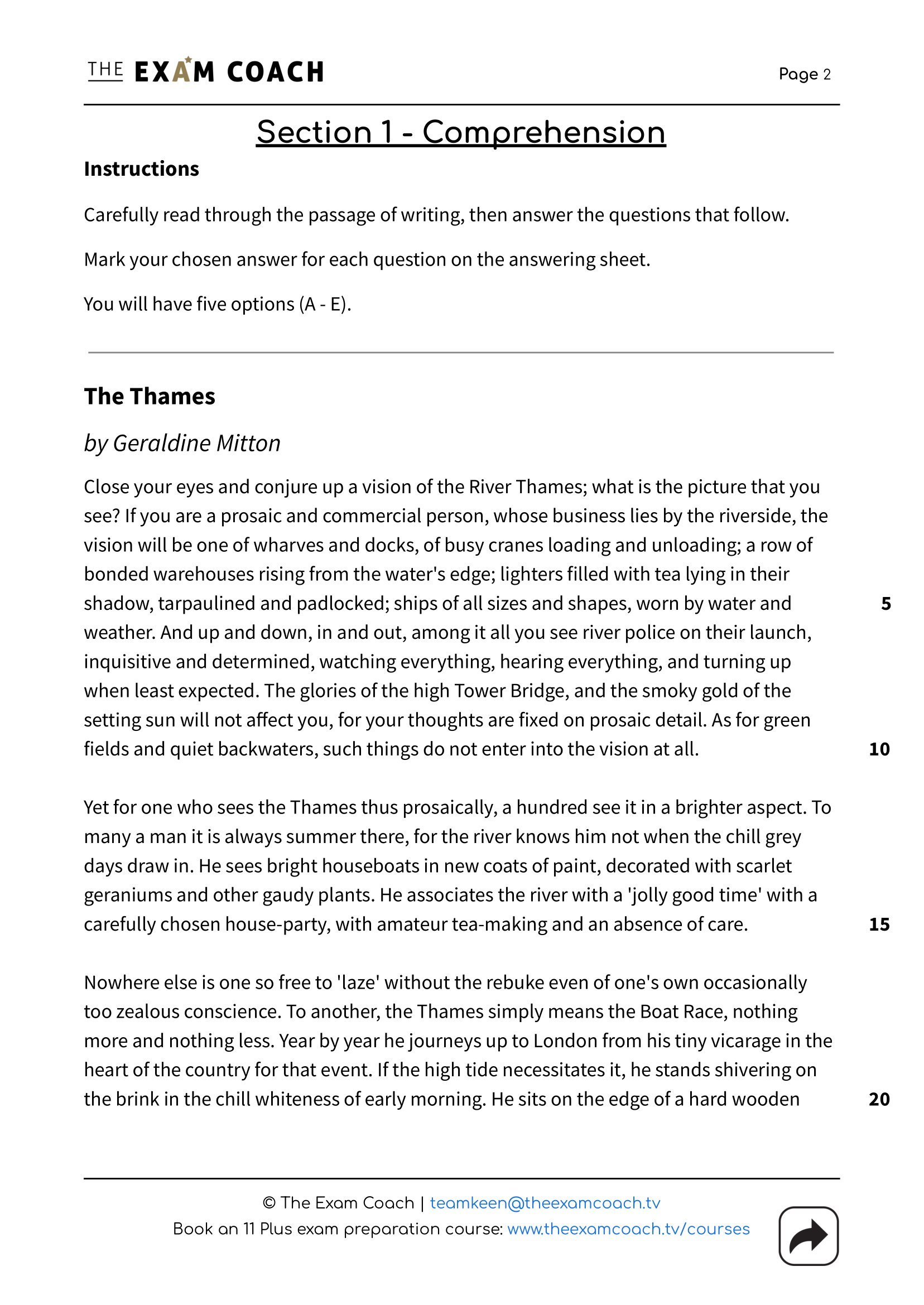
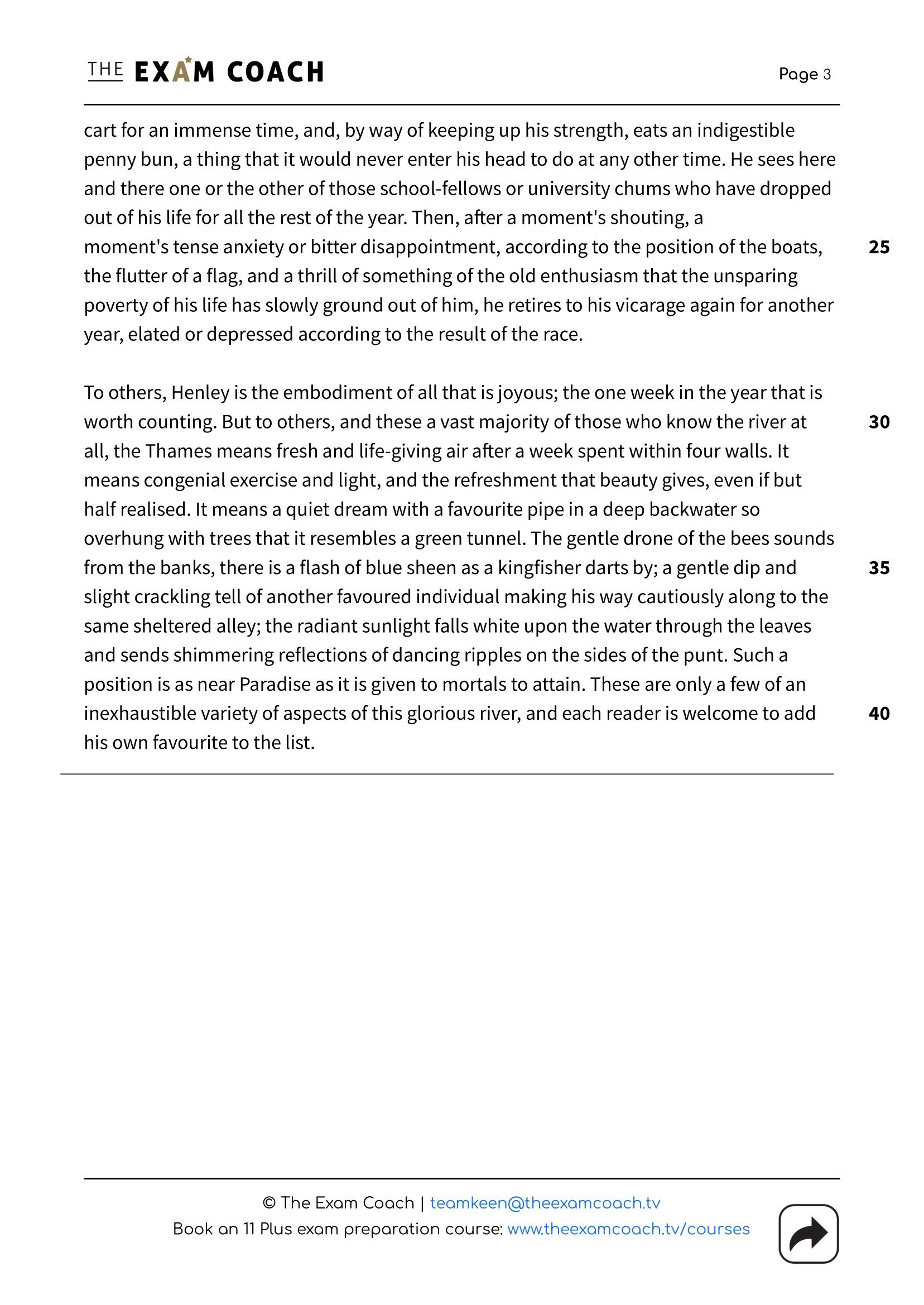
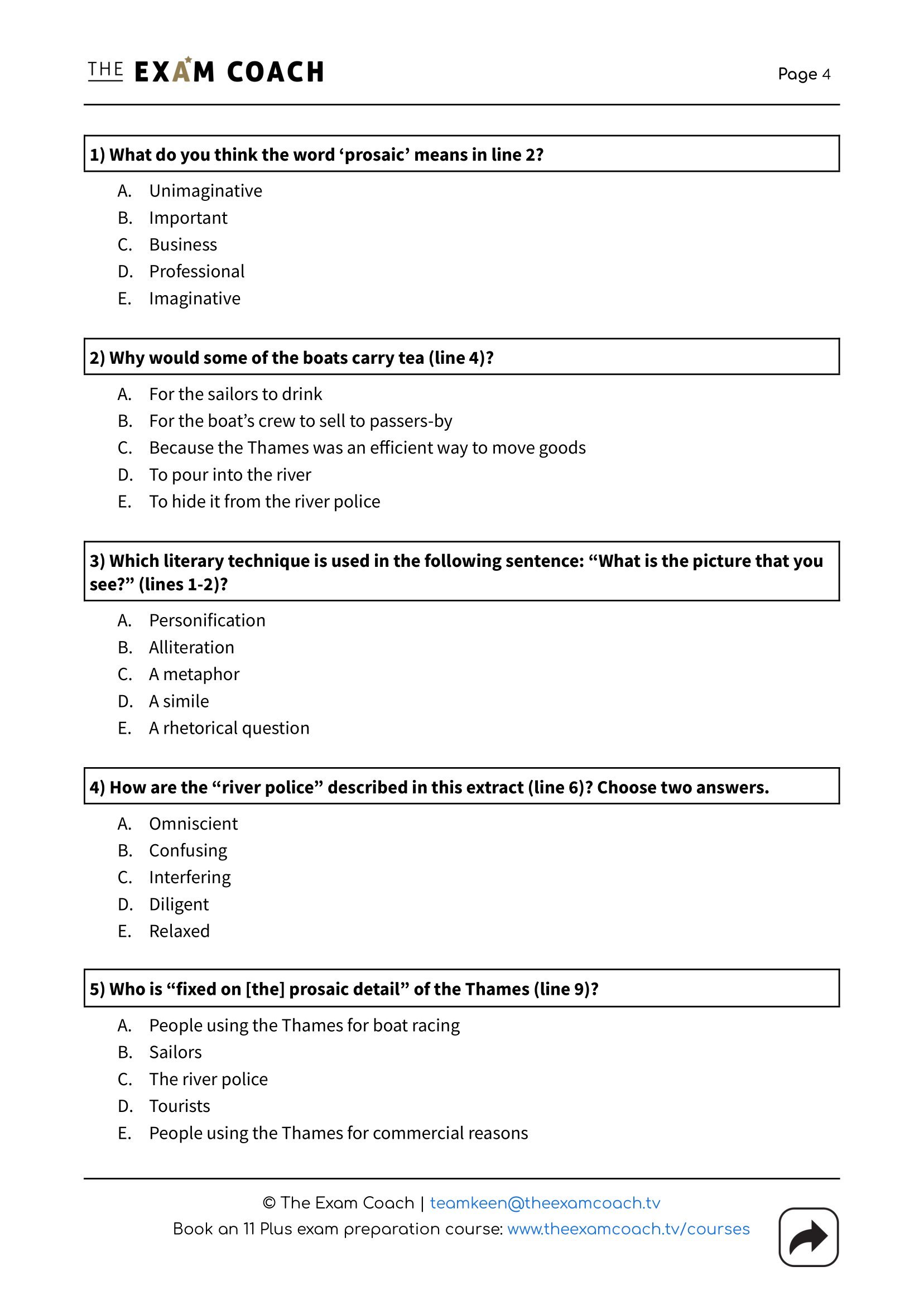
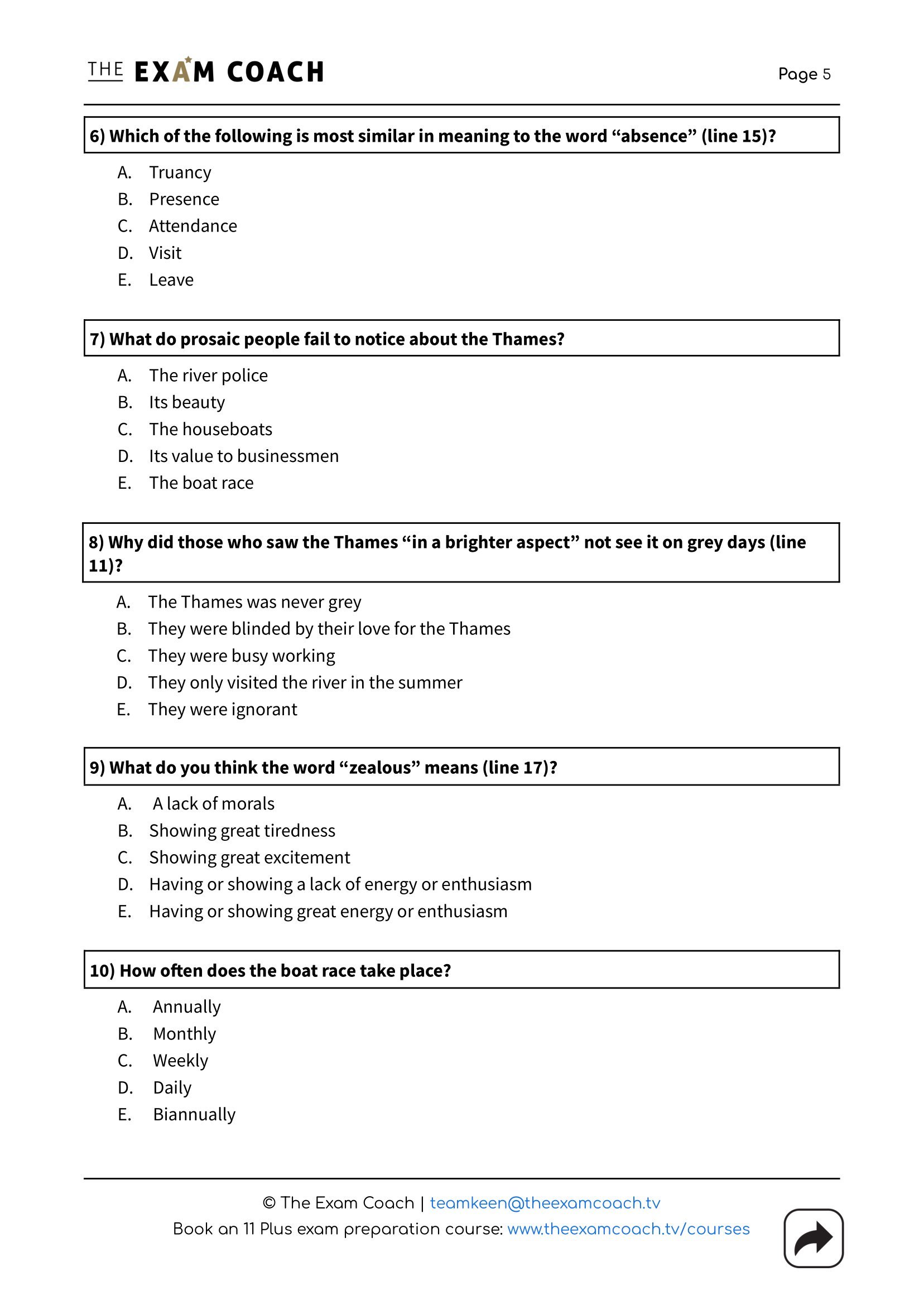
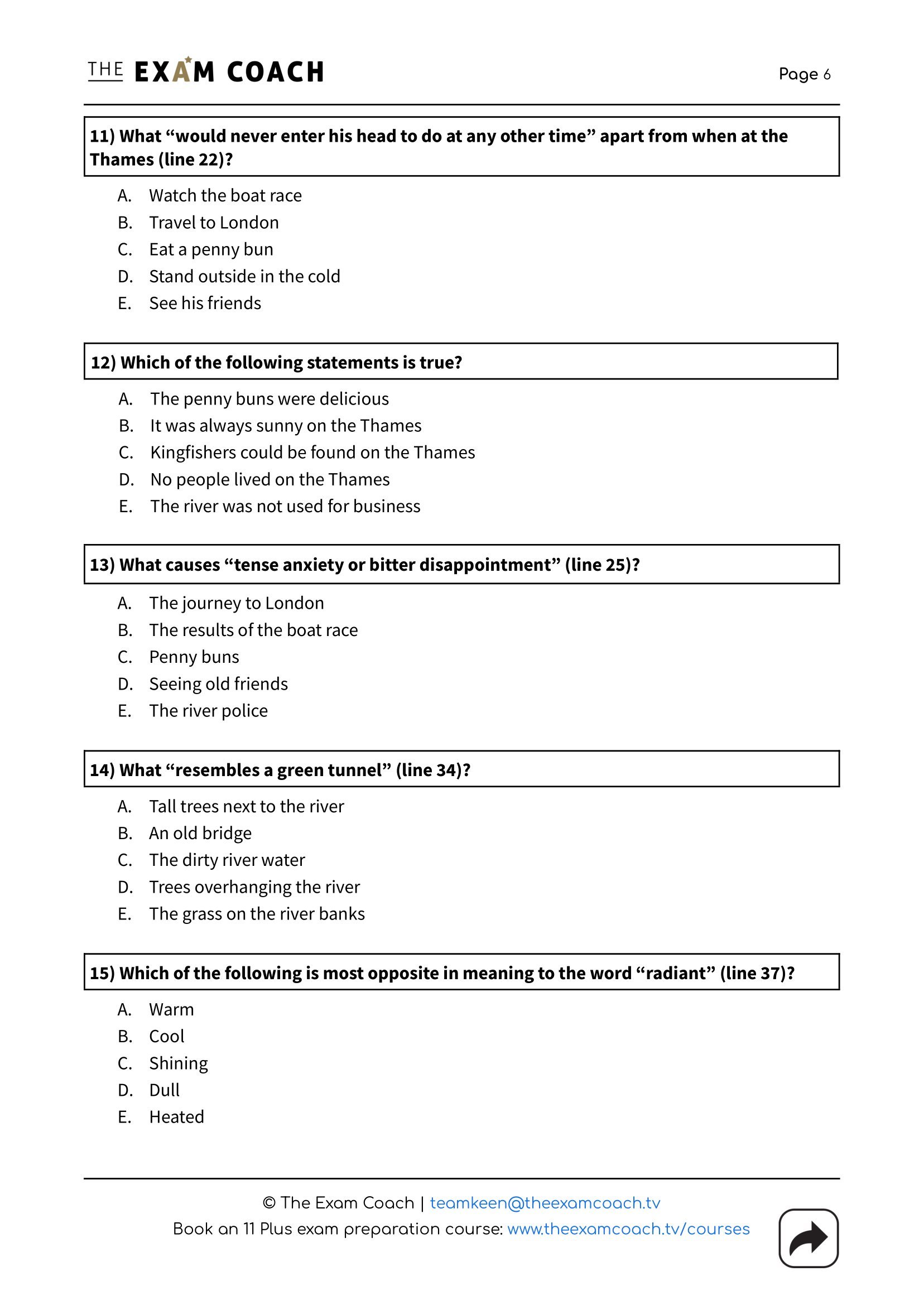
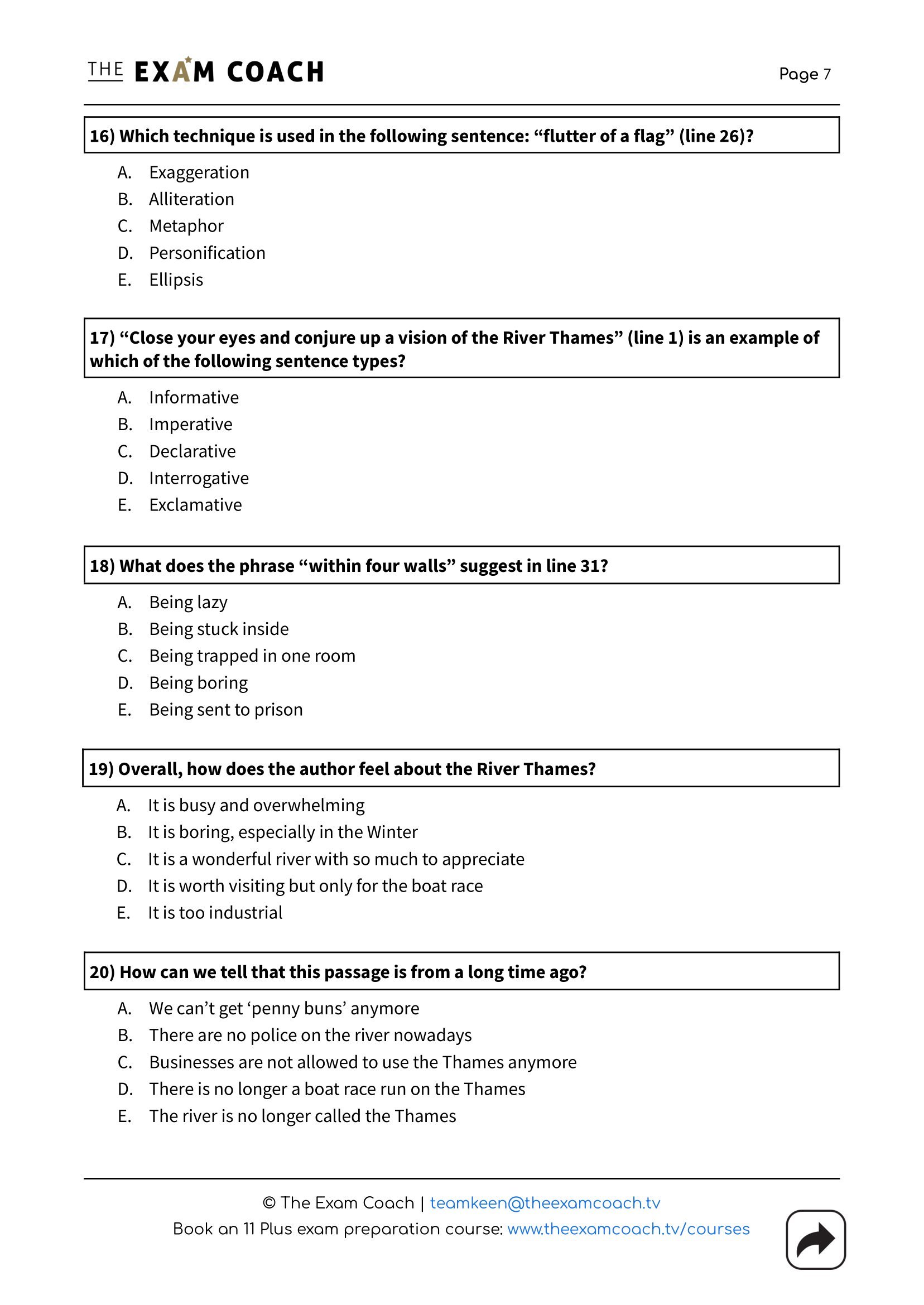
Standard Answer Paper
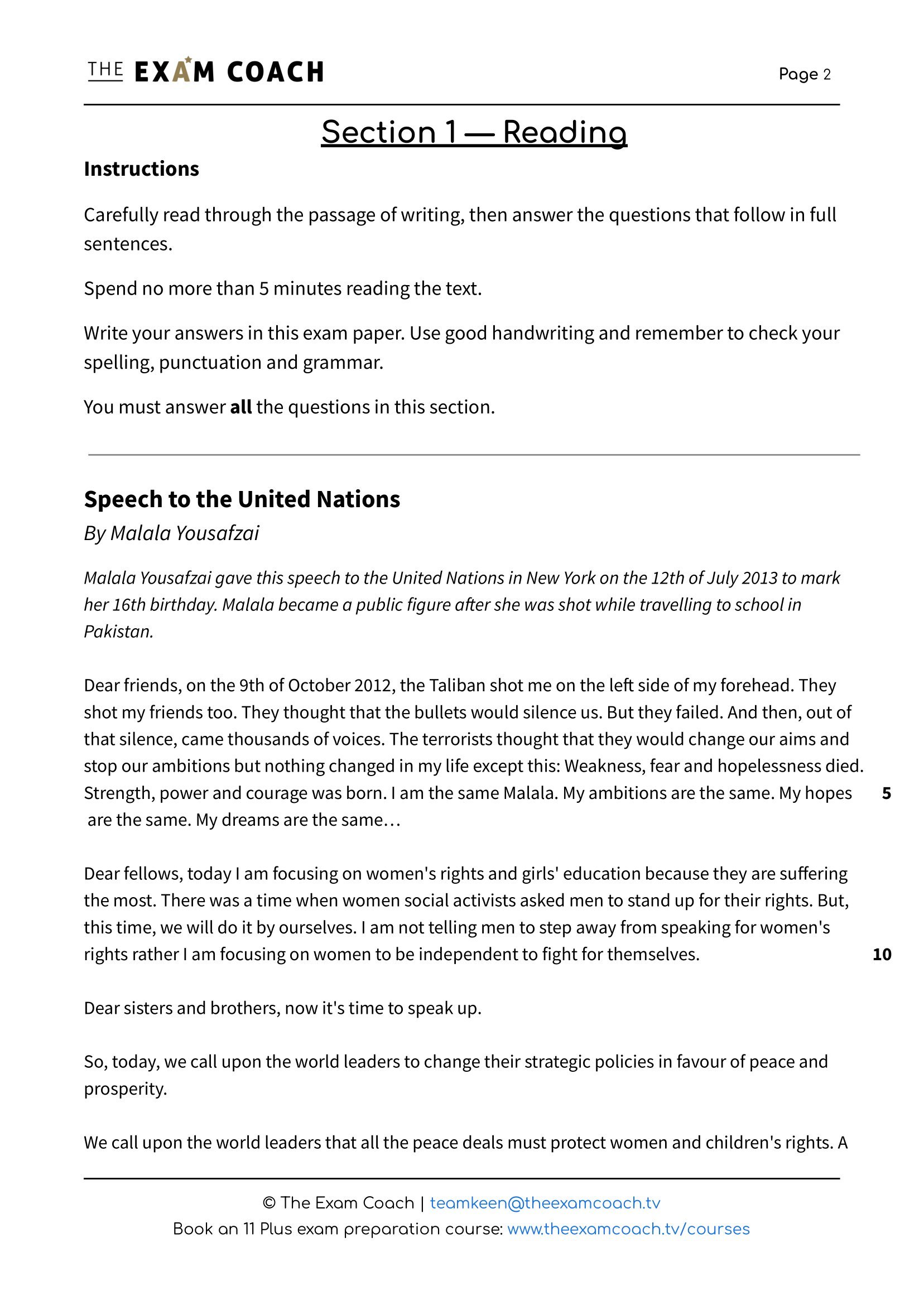

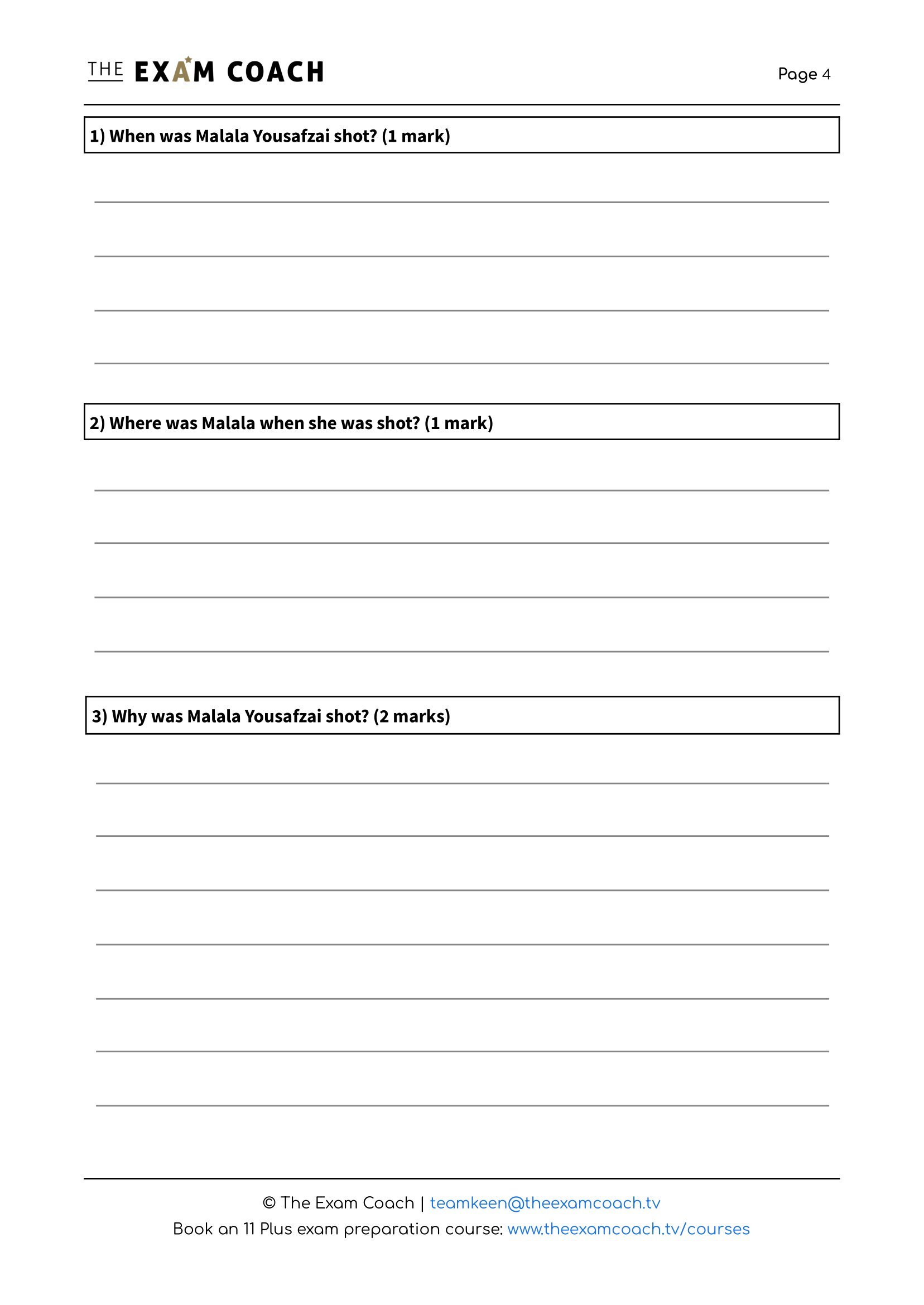
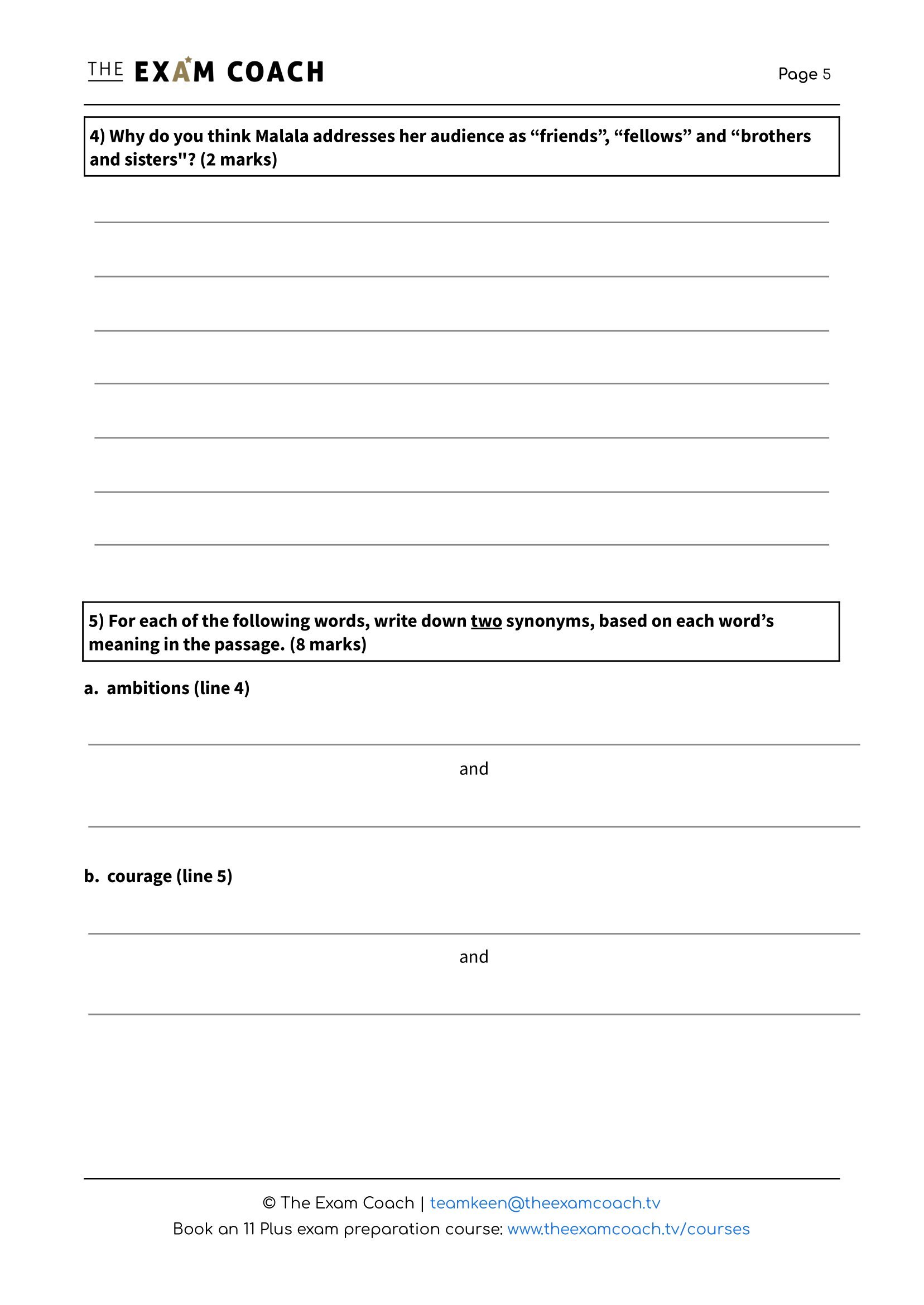
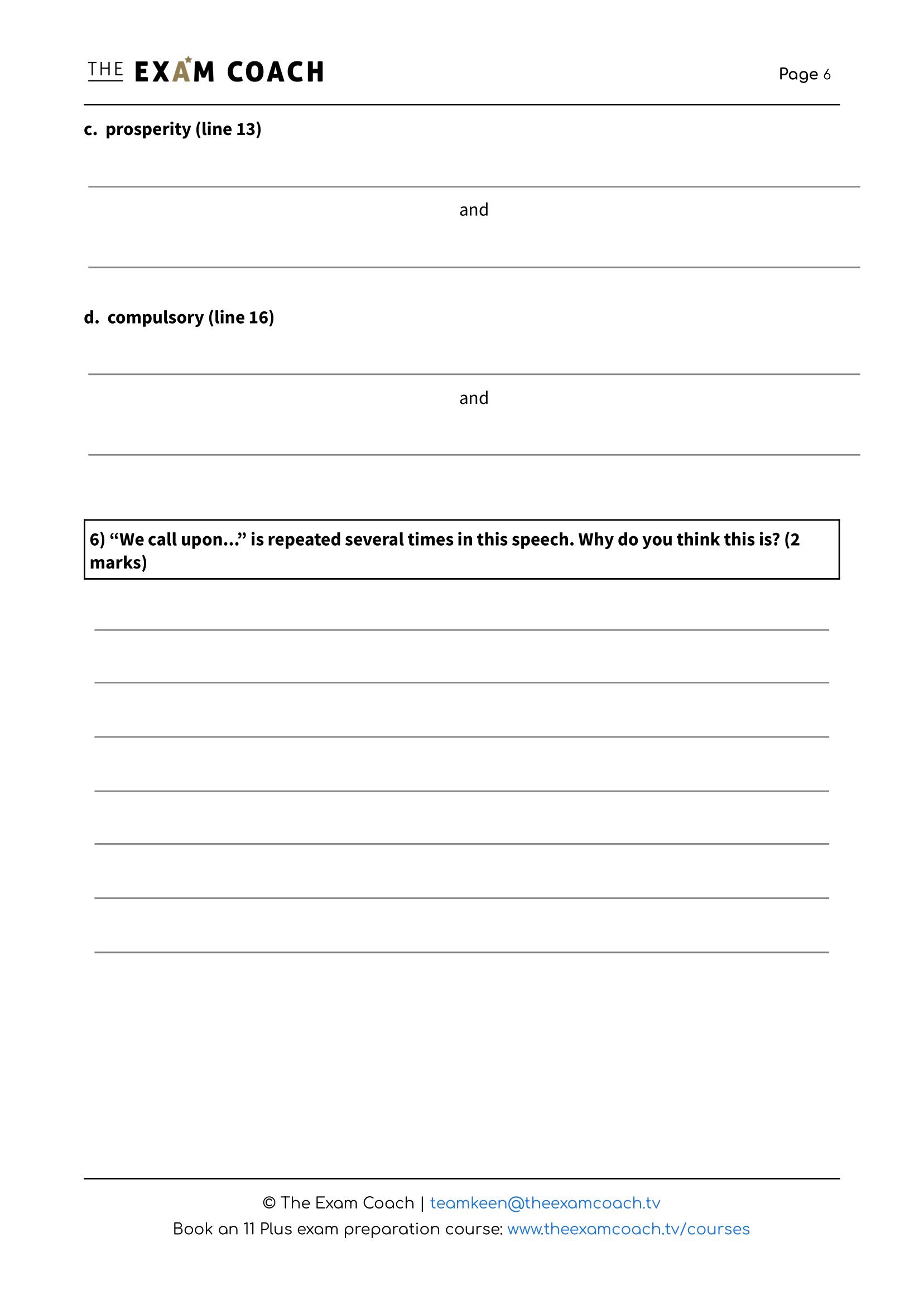
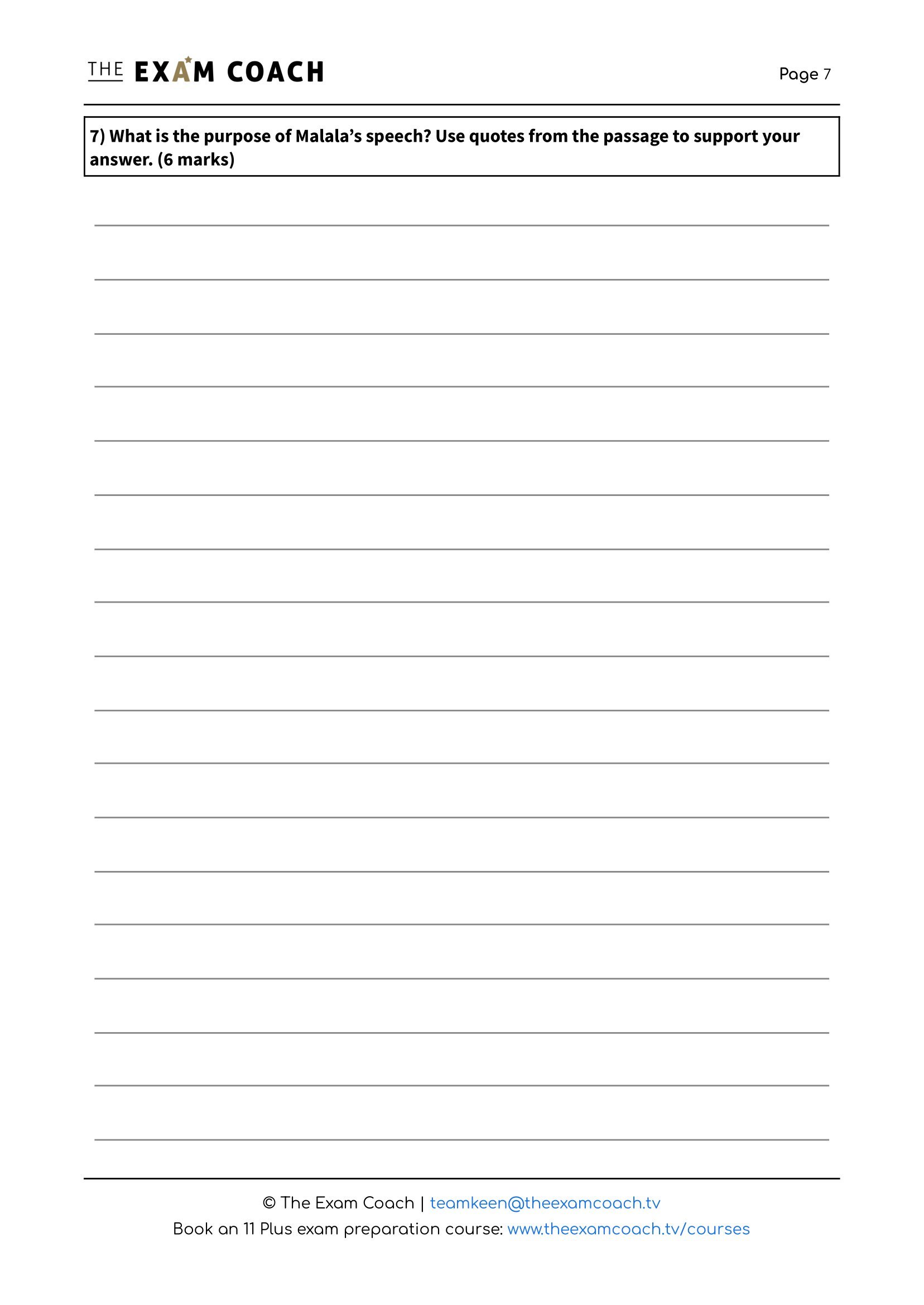
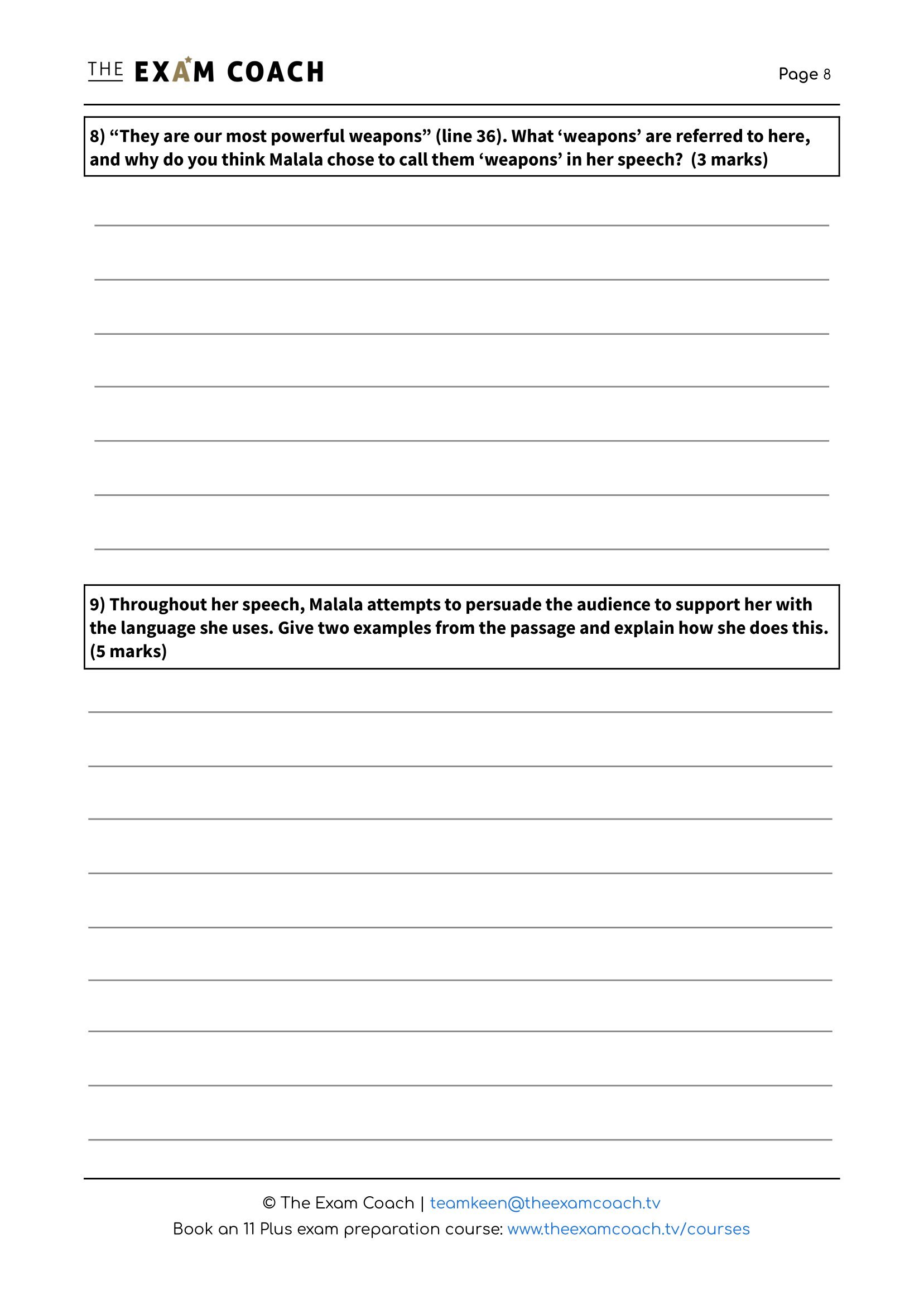
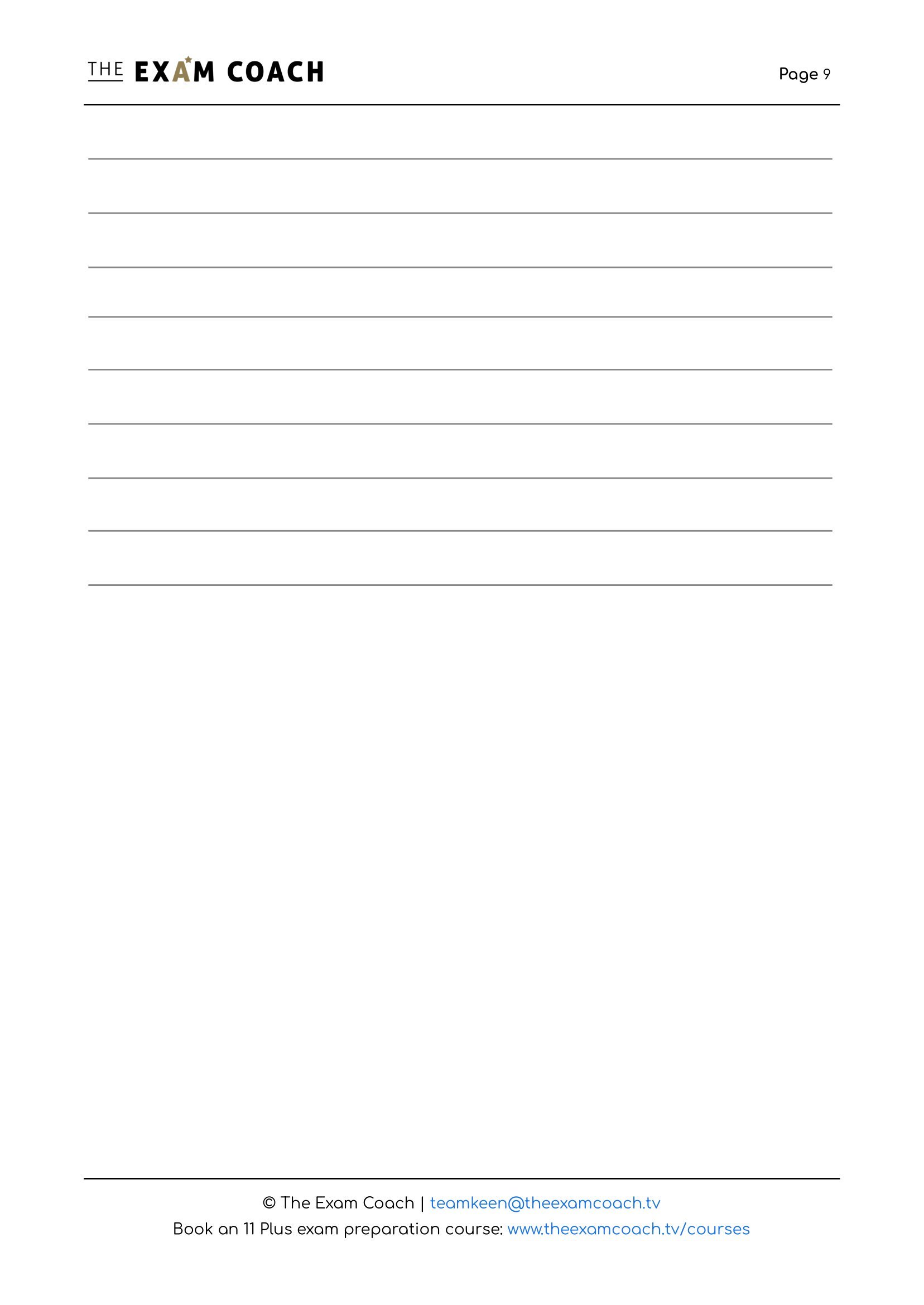
What Does Your Child Need to Succeed in 11 Plus Comprehension?
To succeed in an 11 Plus comprehension task, students need a range of skills, including:
1. Reading fluency
The ability to read a text quickly and accurately is essential for completing any comprehension test. While reading quickly is key, students also must be able to process and understand what they are reading, This comes with practice.
2. Vocabulary knowledge
A strong, wide and complex vocabulary allows students to understand the meaning of any words and phrases in context. This is critical for comprehension, as unseen texts mean they could be presented with difficult and even dated language. The more words they know and understand, the more chances they’ll know the ones they are given in their text.
Take a look at the clip below where James looks into synonyms of the word ‘demand’.
3. Inference
Inference is something that most students struggle with and something we really focus on at The Exam Coach. Inference means using observation and background in order to reach a logical conclusion.
For example, if you saw someone eating a new food and they then made a face, you could then infer they do not like it. Or if someone slams a door, you can infer that they may be upset about something.
Still struggling with inference? Watch the clip below!
4. Understanding and recognising writers’ tricks
The ability to recognise and also understand literary techniques used by authors (such as metaphors, similes, personification, and the five senses) helps students better understand a text’s overall meaning.
5. Approaching an unseen text
Students need to be able to approach an unseen passage with confidence and a plan. At The Exam Coach, we give all our comprehension students a plan on how to go about their comprehension paper, from start to finish, which has been used successfully by our students in the past. When they do not understand sections of a passage, students need to know how to use key strategies to clarify their understanding.
6. Identifying themes, tone and style
Students must be able to recognise and understand the main theme or message of any given text. They should be able to summarize it in a couple of sentences to prove this.
Students also need to be able to recognise the tone, tense, narrator and style of a text, picking out details such as the author's perspective and intended message.
7. Process of elimination
Students should use the process of elimination to help them answer each question, keeping an eye out for red herrings and double-checking their answers.
Watch the video below to see super-tutor James use the process of elimination to find the correct answer.
8. Time management
One of the biggest challenges of the 11 Plus. Students are usually given between 20–40 minutes to both read the text and answer all the questions. Therefore, it's essential for students to develop effective strategies to maximize their speed and efficiency at both reading and answering questions.
By developing all of these skills, students can approach the 11+ English comprehension test with confidence and increase their chances of success. UAE students should especially focus on inference and British vocabulary/idiomatic usage, since those are less commonly tested in local exams. Not sure how to improve your child’s skills in these areas? Read on…
How Can You Prepare Your Child?
Preparing for an 11+ comprehension exam can be a challenge for both you and your child. Parents can play a crucial role in supporting their child's education and helping them develop the skills they need to succeed, but sometimes it’s difficult to know where to start…
Firstly, parents should encourage their child to use as many practice papers as they can to develop their comprehension skills. Practice papers can help students familiarize themselves with the format and style of the exam, as well as giving them an idea of what to expect. Practice papers give students experience working through exam style texts and questions, meaning they won’t be surprised by anything on exam day.
Working through practice papers with your child can also be beneficial, as this allows you to identify areas of weakness and provide targeted feedback and guidance. Practice, after all, does make perfect!
Parents can also help their child develop their comprehension skills by encouraging them to read. Reading widely and regularly exposes children to a variety of texts and genres and helps them build their vocabulary, comprehension, and critical thinking skills. Parents can support their child's reading by providing them with a range of age-appropriate books, magazines, and newspapers, and encouraging them to read for pleasure as well as education. Make sure your child is reading daily in order to develop these skills. Also try to encourage reading of UK children’s literature or newspapers as exposure to idioms, expressions, British English style, and unfamiliar topics can help students based in the UAE.
Finally, parents can help their child expand their vocabulary by exposing them to a range of words in daily life. Try to encourage your child to be inquisitive (meaning having or showing an interest in learning things) and to always ask you or other adults if they ever use words your child does not understand. Hearing and learning new words will allow your child to eventually use them in their speech and writing.
Playing word games, using flashcards, and creative a vocabulary list/book can all be effective strategies for developing a child’s vocabulary. By creating a language-rich environment at home, parents can help their child develop the linguistic skills they need to succeed in an 11+ comprehension exam and beyond.
How Can We Prepare Your Child?
At The Exam Coach, we are 11 Plus exam experts, focusing on our specialisms:
11+ Comprehension
11+ Verbal Reasoning
11+ Creative Writing
11+ Persuasive Writing
To help students master these subjects, we offer the following services:
📚 Weekly Workshops 📚
In our 11 Plus weekly workshops, your tutor will share some background information about themselves and our workshops with new students. This is followed by 40 minutes of teaching time. Weekly workshops usually run at least once a week, usually on weekday evenings. The dates and times of these workshops change each week to ensure everyone can benefit from them.
The content within each workshop varies between 11+ creative writing, comprehension, verbal reasoning or English vocabulary. These classes are a great way to experience our tuition and let your child learn something new before booking one of our courses. Weekly tuition allows us to regularly top up your child’s knowledge during the year prior to their exams.
Each weekly tuition workshop is standalone, meaning your child does not need to have attended any previous sessions to join one. Class notes are sent out 24 hours after each workshop to help students recap what they have learnt.
Types of taster workshop:
Tricky Vocabulary Workout
Verbal Reasoning Synonyms/Antonyms
Comprehension
Creative Writing
Details:
45 minutes.
Introduction to The Exam Coach.
Competitive class testing.
Self-assessed testing.
Walkthrough answers.
Class notes.
When they take place:
At least once a week (date and time announced on Mondays via our email newsletter).
How to register:
📝 11 Plus Practice Papers 📝
We have plenty of practice papers available for various 11+ exam boards to help your child prepare. We provide papers for CEM, GL, ISEB, Kent, Sutton, and Independent School exams.
🎙️ Our Vocabulary Podcast 🎙️
Our 11+ Daily Vocab Show podcast is available on our website and all major streaming platforms. In each episode, we teach children a new word, expanding their vocabulary one word at a time.
Every podcast episode focuses on one tricky piece of vocabulary, ensuring that your child’s vocabulary is built up slowly and that they fully understand each word they learn.
All podcast episodes can be found using the links below:
Listen to the first episode, featuring the word ‘siege’, by clicking the image below.




